With a strong distribution network and strategic partnerships, Blissam is able to serve customers worldwide. Our silicone alkyd resin are popular in Asian, European and North American markets, and we continue to expand our business scope to new regions. Deep expertise and manufacturing excellence enable Bissam to deliver unique performance characteristics and value-added solutions for each customer's application.
about high temp silicone resin, we have carefully prepared some relevant professional knowledge documents for you, hope to provide some help to you who are interested in silicone alkyd resin
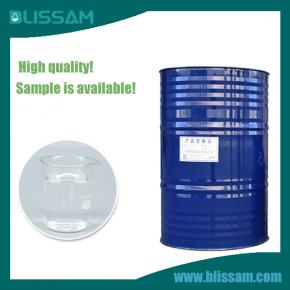


1high temp silicone resin adhesives are a versatile and high-performance type of adhesive that offers a wide range of benefits. These adhesives are made from silicone polymers, making them resistant to high temperatures, chemicals, and UV radiation. They also have excellent electrical insulation properties, making them ideal for use in electronics manufacturing. In addition, silicone resin adhesives have a high adhesion strength and can bond well with a variety of substrates, including metal, plastic, and glass. This makes them suitable for a wide range of applications, including automotive, aerospace, and construction industries. With their unique properties and durability, silicone resin adhesives continue to unlock new possibilities for efficient and reliable bonding solutions.
2high temp silicone resin has become an indispensable component in a wide range of products, including adhesives, coatings, sealants, and even medical devices. Its ability to withstand extreme temperatures, water, and chemicals make it ideal for use in demanding manufacturing processes such as automotive, construction, and electronics. Furthermore, its smooth and non-stick surface has made it a popular choice for molds and coatings, while its electrical insulation properties have made it a go-to material for electronics manufacturing. The versatility of silicone resin continues to drive innovation and improve the efficiency and quality of manufacturing processes worldwide.
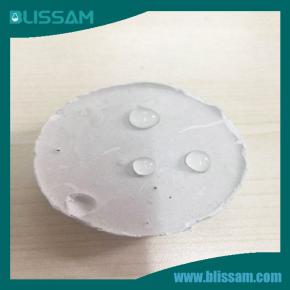
Silicone resin is a versatile material with a wide range of applications. As its name suggests, it is made primarily from silicone, a synthetic compound known for its heat resistance and flexibility. From adhesives to electrical insulation, silicone resin has become an essential ingredient in various industries.In the manufacturing sector, silicone resin is widely used as an adhesive due to its strong bonding properties. It can securely bind materials such as ceramics, metals, and plastics, making it a popular choice for construction, automotive, and electronics industries.

where the potential of silicone resin is being harnessed in new and exciting ways. With its unique properties such as high thermal resistance, superb adhesion, and excellent weathering resistance, silicone resin has become a favored material for high-performance coatings. From industrial products to consumer goods, our cutting-edge silicone resin coatings provide superior protection and durability, making them an essential choice for a wide range of applications. Join us as we unleash the untapped potential of silicone resin and revolutionize the world of coatings.
Silicone Resin--An Ultimate FAQ Guide.
Does Silicone Resin have high temperature resistance?
2.Does Silicone Resin have good flexibility?
3.About Silicone Resin origin
4.Is Silicone Resin affected by humid environments?
5.What is the difference Silicone Resin Fluids Blissam vs Silicone Resin Dow Corning vs Silicone Resin Wacker Chemie AG
6.What happens when Silicone Resin comes in contact with air?
7.Is Silicone Resin weather-resistant?
8.Does Silicone Resin have good adhesion properties?
9.Is Silicone Resin waterproof?
10.How to Produce Silicone Resin?
11.What are the main ingredients of Silicone Resin?
12.About Silicone Resin technology
13.Does Silicone Resin have any impact on the environment?
14.What effect does Silicone Resin have on temperature changes?
15.What application areas can Silicone Resin be used in?
16.About the development history of Silicone Resin factory
17.About Silicone Resin customization services
18.Can Silicone Resin be used to create products with corrosion-resistant properties?
19.What is the texture of Silicone Resin?
20.What products can Silicone Resin be used to make?
1.Does Silicone Resin have high temperature resistance?
Generally, the heat resistance temperature of synthetic resin paint is below 150 ℃, while organic silicon paint can be used for a long time at 200 ℃. If high-temperature pigments are added, the heat resistance can reach 400 ℃~500 ℃, and special ones can also reach 800 ℃~900 ℃. Therefore, it is suitable for coating high-temperature resistant components.
2.Does Silicone Resin have good flexibility?
The hardness and elasticity of silicone resin paint films can vary over a large range by adjusting the molecular structure of the resin. When the content of three or four functional chains is higher, that is, the crosslinking density is higher, a paint film with high hardness and low elasticity can be obtained; Introducing substituents with large steric hindrance can improve flexibility and thermoelasticity, which is why methylphenyl silicone resin has better flexibility and thermoplastic properties than methylsilicone resin. Therefore, silicone resin does not require the use of special plasticizers, but can meet the requirements for plasticity through the appropriate combination of soft and hard silicone resins.
3.About Silicone Resin origin
Silicone resin refers to a class of synthetic polymers that are primarily made from silicon, oxygen, carbon, and hydrogen atoms. Developed in the early 20th century, silicone resin has a unique structure that gives it exceptional heat resistance, weatherability, and water repellence. It is commonly used in various industries such as construction, electronics, and automotive due to its superior properties. With continuous advancements in technology, silicone resin has evolved to have various formulations, making it a versatile material for various applications. Its durability, flexibility, and chemical resistance make it a popular choice for coatings, adhesives, and sealants. Originating from the innovative research of American chemist Eugene G. Rochow in 1907, silicone resin has come a long way and continues to play a significant role in modern materials and technology.
4.Is Silicone Resin affected by humid environments?
In the construction industry, silicone resin is often used as a building sealant. Due to its excellent weather resistance and adhesion, it can effectively prevent water and air infiltration, ensuring the sealing and durability of buildings. Organic silicone resin sealant is widely used in exterior walls, windows, and doors of buildings.
5.What is the difference Silicone Resin Fluids Blissam vs Silicone Resin Dow Corning vs Silicone Resin Wacker Chemie AG
Our company has over 10 years of experience in the organic silicon industry, and we have collaborated with many research institutions to carry out many innovative projects. Our product quality meets international standards, and quality inspections are conducted before each batch of products is shipped. In addition, we pay more attention to product development in specific fields and can customize personalized products for customers to better meet their needs.
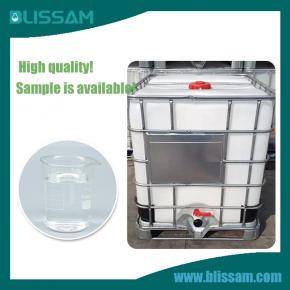
6.What happens when Silicone Resin comes in contact with air?
Silicone resin is a thermosetting plastic, and one of its most prominent properties is its excellent thermal oxidation stability.
7.Is Silicone Resin weather-resistant?
Yes, due to the presence of a non polar organic gene and molecular symmetry on the outer layer of organic silicone paint molecules, it is the fundamental reason for its excellent hydrophobicity.
8.Does Silicone Resin have good adhesion properties?
Among the existing heat-resistant adhesives, organic silicone adhesive is one of the excellent varieties. The types of organic silicone adhesive include high-temperature resistant adhesive, heat-resistant sealant, high-temperature strain resistant adhesive, and heat-resistant pressure sensitive adhesive. Due to the relatively stable molecular structure of Si-O-Si, similar to inorganic salts, in organic silicon condensates, both liquid, solid, and elastic polymers have high heat resistance and chemical stability, excellent electrical insulation, and excellent hydrophobicity.
9.Is Silicone Resin waterproof?
yes,In the molecular structure of silicone resin, organic groups such as methyl are arranged outward and do not contain polar groups, resulting in low water absorption and excellent hydrophobicity.
10.How to Produce Silicone Resin?
Usually, various mixtures of methyltrichlorosilane, dimethyldichlorosilane, phenyltrichlorosilane, diphenyldichlorosilane, or methylphenyldichlorosilane are used to decompose at lower temperatures in the presence of organic solvents such as toluene, to obtain acidic hydrolysates. The initial product of hydrolysis is a mixture of cyclic, linear, and cross-linked polymers, typically containing a considerable amount of hydroxyl groups. The hydrolysate is washed with water to remove the acid, and the neutral initial condensate is thermally oxidized in air or further condensed in the presence of a catalyst, ultimately forming a highly cross-linked three-dimensional network structure.
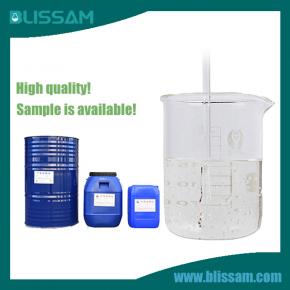
11.What are the main ingredients of Silicone Resin?
Organic silicone resin is a highly cross-linked network structure of polyorganosiloxanes, usually composed of various mixtures of methyltrichlorosilane, dimethyldichlorosilane, phenyltrichlorosilane, diphenyldichlorosilane, or methylphenyldichlorosilane. In the presence of organic solvents such as toluene, it is decomposed with water at lower temperatures to obtain acidic hydrolysates. The initial product of hydrolysis is a mixture of cyclic, linear, and cross-linked polymers, typically containing a considerable amount of hydroxyl groups. The hydrolysate is washed with water to remove the acid, and the neutral initial condensate is thermally oxidized in air or further condensed in the presence of a catalyst, ultimately forming a highly cross-linked three-dimensional network structure.
12.About Silicone Resin technology
1. Unique production process: Blissam has a unique production process to produce high-quality chemicals. These production processes can ensure efficient and low-cost production, while ensuring product quality and accuracy. 2. Continuous improvement and optimization: Blissam usually continuously improve and optimize their production processes and technologies to improve production efficiency, reduce costs, improve product quality, and increase market competitiveness. 3. Strict quality control: Blissam usually adopts strict quality control measures to ensure the quality and safety of products. For example, advanced testing equipment and instruments are used to conduct multi-level quality control and testing of products to ensure their quality and safety.
13.Does Silicone Resin have any impact on the environment?
Organic silicone resin is a green and environmentally friendly building material that does not cause any harm to the environment and human body.
14.What effect does Silicone Resin have on temperature changes?
The temperature resistance of organic silicone resin mainly depends on the strength of the silicon oxygen bonds in its molecular structure. Silicon oxygen bonds are a strong chemical bond with a bond energy of up to 300 kcal/mol (approximately 429.8KJ/mol). This means that when the silicone resin is heated, the silicon oxygen bond will be destroyed, releasing a large amount of heat. However, as the temperature increases, the movement of molecular chains in organic silicone resin will also accelerate, leading to more cleavage of silicon oxygen bonds. In this way, the heat resistance of the silicone resin will gradually decrease. According to experimental data, the melting point of ordinary silicone resin is between 200 and 250 ° C, and the ignition point is between 180 and 230 ° C. These data indicate that organic silicone resin is stable at room temperature, but once subjected to high temperatures, it will undergo decomposition, melting, or combustion. However, for specially modified silicone resins, their temperature resistance can be significantly improved. For example, organic silicone resin modified with alumina can have a temperature resistance of 300-400 ° C; The temperature resistance of organic silicone resin reinforced with carbon fibers can reach over 600 ° C; The silicone resin modified with fluoride has a temperature resistance of over 1000 ° C.
15.What application areas can Silicone Resin be used in?
Organic silicone resin is mainly used as insulation paint (including varnish, enamel, color paint, impregnation paint, etc.) to impregnate H-grade motor and transformer coils, as well as to impregnate glass cloth, glass cloth wire, and asbestos cloth to make motor sleeves, electrical insulation windings, etc. Large area mica sheet insulation material can be prepared by bonding mica with organic silicon insulation paint, which can be used as the main insulation of high-voltage motors. In addition, silicone resin can also be used as heat-resistant and weather resistant anti-corrosion coatings, metal protective coatings, waterproof and moisture-proof coatings for construction projects, release agents, adhesives, and secondary processing into organosilicon plastics. It is used in electronics, electrical, and national defense industries as semiconductor packaging materials, and electronic and electrical silicone resins can be roughly divided into organosilicon insulation coatings, organosilicon coatings, and There are several major categories such as silicone plastics and silicone adhesives. Silicone resin processing additives have unique flexibility and compatibility, and have become a key component in the production of pulp and household paper. The details are as follows: (1) Electrical insulation paint: The volume, quality, and service life of motor appliances are closely related to the performance of electrical insulation materials. Therefore, various types of electrical insulation paints are required in industry, including coil impregnation paint, glass cloth impregnation paint, mica bonded insulation paint, and silicon paint for electronic and electrical protection. (2) Coating: Silicone resin has excellent properties such as heat resistance, cold resistance, weather resistance, and hydrophobicity. In addition, it can obtain colorless, transparent, and has good adhesion and wear resistance coatings, as well as anti adhesion and anti detachment coatings and moisture-proof and hydrophobic coatings. (3) Adhesive: There are two types of polysiloxanes used as adhesives: silicone type and silicone resin type, with differences in structure and crosslinking density between the two. Among them, there are resin based adhesives, including pure silicone resin and modified resin. (4) Plastics: mainly used in heat resistant, insulating, organic silicon plastics, arc resistant packaging plastics for semiconductor module shells, and foamed plastics. (5) Micro powder and trapezoidal polymer: Compared with inorganic fillers, silicone resin micro powder has the characteristics of low relative density, heat resistance, weather resistance, lubricity, and hydrophobicity. The trapezoidal silicone resin has higher heat resistance, electrical insulation, and flame resistance than the general mesh three-dimensional structure silicone resin.
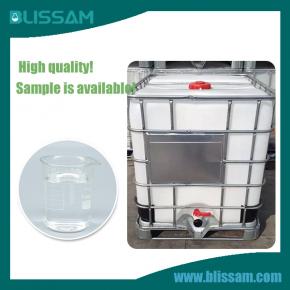
16.About the development history of Silicone Resin factory
Our company has over 10 years of experience in the organic silicon industry.
17.About Silicone Resin customization services
We pay more attention to product development in specific fields and can customize personalized products for customers to better meet their needs.
18.Can Silicone Resin be used to create products with corrosion-resistant properties?
Yes.Silicone resin has corrosion resistance, which can resist certain sulfuric acid, hydrochloric acid and other similar acidic media. Therefore, it is often used as a material for synthetic rubber, foam plastics and other products.
19.What is the texture of Silicone Resin?
Hand feel is a very important indicator for measuring the quality of finished leather. The use of hand feel agents in the top coating of leather can greatly improve the comfort, aesthetics, and added value of leather. Among the hand feeling agents, silicone hand feeling agents have the best effect, the most varieties, the widest application, and the fastest development. The leather treated with organic silicon tactile agent can not only maintain elasticity, fullness, breathability, and hygiene performance, but also improve the tactile feel and softness. After finishing, the drying speed is fast, and it is not easy to become hard or brittle after drying. The surface of the leather has good stability to water and chemicals.
20.What products can Silicone Resin be used to make?
Organic silicone resin is mainly used as insulation paint (including varnish, enamel, color paint, impregnation paint, etc.) to impregnate H-grade motor and transformer coils, as well as to impregnate glass cloth, glass cloth wire, and asbestos cloth to make motor sleeves, electrical insulation windings, etc. Large area mica sheet insulation material can be prepared by bonding mica with organic silicon insulation paint, which can be used as the main insulation of high-voltage motors. In addition, silicone resin can also be used as heat-resistant and weather resistant anti-corrosion coatings, metal protective coatings, waterproof and moisture-proof coatings for construction projects, release agents, adhesives, and secondary processing into organosilicon plastics. It is used in electronics, electrical, and national defense industries as semiconductor packaging materials, and electronic and electrical silicone resins can be roughly divided into organosilicon insulation coatings, organosilicon coatings, and There are several major categories such as silicone plastics and silicone adhesives. Silicone resin processing additives have unique flexibility and compatibility, and have become a key component in the production of pulp and household paper. The details are as follows: (1) Electrical insulation paint: The volume, quality, and service life of motor appliances are closely related to the performance of electrical insulation materials. Therefore, various types of electrical insulation paints are required in industry, including coil impregnation paint, glass cloth impregnation paint, mica bonded insulation paint, and silicon paint for electronic and electrical protection. (2) Coating: Silicone resin has excellent properties such as heat resistance, cold resistance, weather resistance, and hydrophobicity. In addition, it can obtain colorless, transparent, and has good adhesion and wear resistance coatings, as well as anti adhesion and anti detachment coatings and moisture-proof and hydrophobic coatings. (3) Adhesive: There are two types of polysiloxanes used as adhesives: silicone type and silicone resin type, with differences in structure and crosslinking density between the two. Among them, there are resin based adhesives, including pure silicone resin and modified resin. (4) Plastics: mainly used in heat resistant, insulating, organic silicon plastics, arc resistant packaging plastics for semiconductor module shells, and foamed plastics. (5) Micro powder and trapezoidal polymer: Compared with inorganic fillers, silicone resin micro powder has the characteristics of low relative density, heat resistance, weather resistance, lubricity, and hydrophobicity. The trapezoidal silicone resin has higher heat resistance, electrical insulation, and flame resistance than the general mesh three-dimensional structure silicone resin.

Tag:Silicone Fluids,Silicone Emulsion,Defoamer
Contact:
Phone: +86-15957191858
E-mail: info@blissam.com
Whatsapp:+8615957191858
Add: A647, No. 9, Xiyuan Road, Xihu District, Hangzhou, Zhejiang, China
We chat
